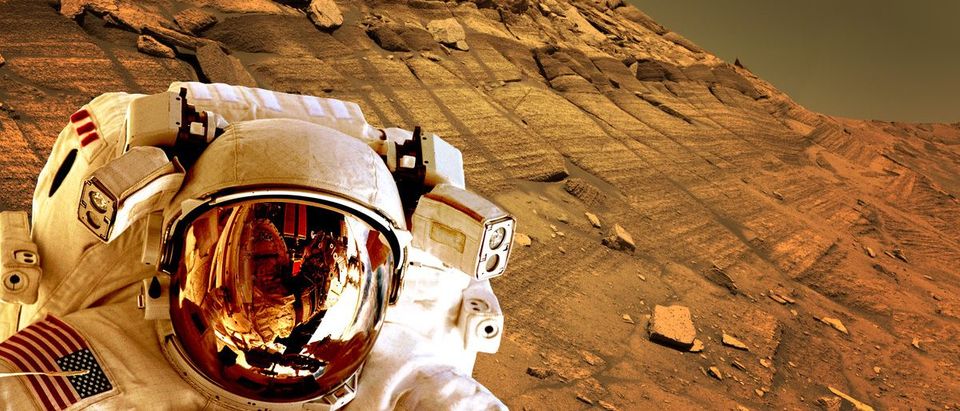With a room full of astronauts, legislators, and journalists looking on, the president authorized a new law that will allocate 19.5 billion in spending for NASA. This program includes landing people on the surface of Mars by 2033. As Trump read: “For almost 6 decades, NASA’s work has inspired millions and millions of Americans to imagine worlds and a better future right here on Earth…I’m delighted to sign this bill. It’s been a long time since a bill like this has been signed reaffirming our commitment to the core mission of NASA: human space exploration, space science, and technology.”
This is a bipartisan, public-private partnership that will support the use of the international Space Station through 2024, enable a commercial space launch system, propel the Orion Space Craft, supply ongoing medical monitoring of astronauts, focus on deep space exploration, and do something that the human race has longed for since antiquity. As astronaut Sally Ride put it: “Studying whether there’s life on Mars or studying how the universe began, there’s something magical about pushing back the frontiers of knowledge. That’s something that is almost part of being human, and I’m certain that will continue.”
Trump’s NASA Transition Authorization Act of 2024, will, if it is supported by the American people through Congress, continue to satisfy our human quest for knowledge. It will take us beyond the outer realms of what we once thought possible.
But let us be clear. Trump’s “America First” rhetoric is simply irrelevant when talking about deep space exploration. There is no such thing as a unilateral national space program. Not any more. All space programs are international. The science behind every equation involved in going to Mars is international. The technology needed to get there is international. In the end, the very pursuit of going there in the first place is a challenge that all humanity must embrace and solve. The achievement would be a milestone for the entire world. As I see it, Trump’s xenophobic and jingoistic “America First” mentality contradicts the spirit and function of NASA and makes his goal to inhabit Mars impossible.
Today, it does not make practical sense to pit one nation against another in a modern space race. Former NASA Administrator Charles Bolden said: “I have no desire to do a Mars landing on our own… The U.S. cannot always be the leader, but we can be the inspirational leader through international cooperation in space exploration.” The mission inevitably will be international, as will any future human landings on the moon, Bolden said. After-all, “We already have gone there first.”
Bolden knows that space has been an international community for almost two decades. The International Space Station (ISS) was launched in 1998. It is the largest person constructed object in space and can be seen with the naked eye from the surface of Earth. ISS is serviced by a variety of visiting spacecraft including the Russian Soyuz and Progress, the American Dragon and Cygnus, the Japanese H-11 Transfer Vehicle, and the European Automated Transfer Vehicle. It has been visited by astronauts, cosmonauts, and space tourists from 17 different countries.
Moreover, if President Trump thinks that his mission will succeed without China, he should think again. The Chinese government has committed fully to its space program, seeing it as a means to secure global advantage.
China launched its first orbital space lab, a small module called Tiangong-1 (the name means “heavenly palace”), in 2011. The next big step will be the construction of a full-scale space station, due for completion around 2020.
Brian Harvey, author of the recent book China in Space writes: “They are very disciplined in not letting themselves be rushed. China is very conscious of its history. They’ve been doing rocketry since 1274, so what’s the hurry?”
In fact, the Chinese expect to complete their space station around the same time ISS runs out of funding.
Having said all of that, I certainly do not want to throw cold water on Trump’s NASA initiative, which is the most ambitious, well meaning, and socially purposeful directive to come out of his White House so far. It has tremendous potential to not only increase human understanding of terrestrial life, geology, planetary science, medicine, and biotechnology; but it also has the potential to strengthen STEM education in America, and to bring this country into an international effort that can unite our species. As a humanitarian and lover of discovery, I hope this works.
Will Trump get on board and lead by following? Or will he try to make this about himself and fail once again like he did with the refugee travel ban, Russian hacking investigation and health care bill?
Interesting times indeed.
George Cassidy Payne is a State University New York Adjunct Professor of Philosophy.


